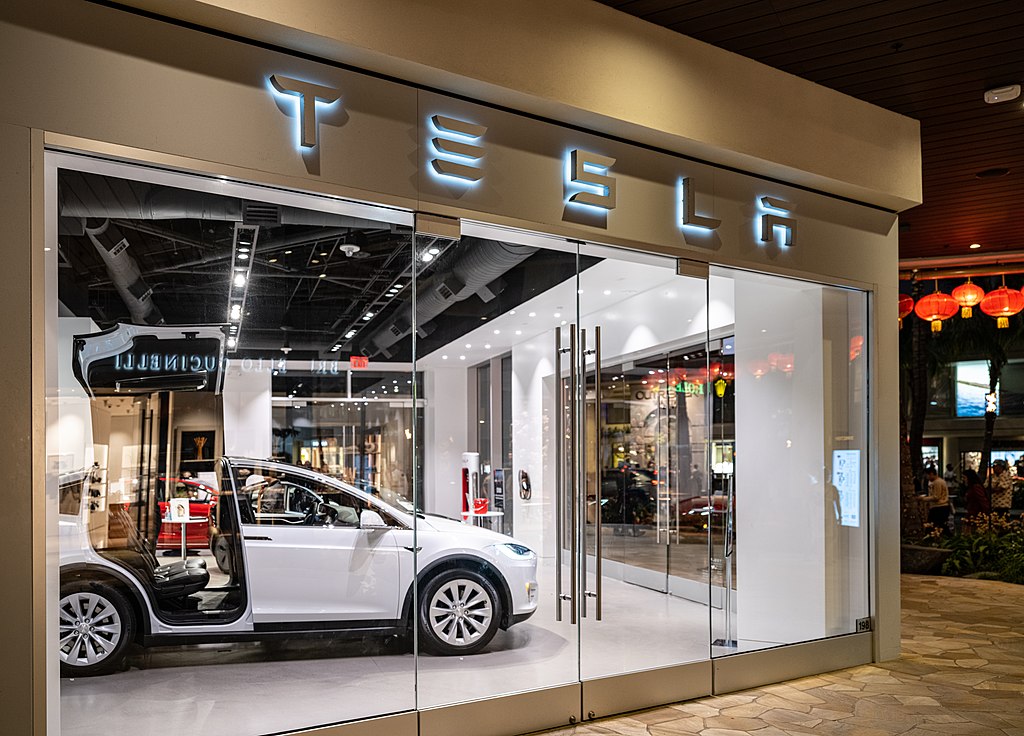Tesla (NASDAQ:TSLA) is facing a turbulent 2025 as CEO Elon Musk pledges a return to growth following the EV giant’s first-ever annual sales decline in 2024. However, recent data paints a grim picture: Tesla’s Q1 deliveries dropped 13% year-over-year—its weakest performance in nearly three years.
Investors and analysts cite growing brand damage as a key factor. Protests have erupted globally over Musk’s involvement with former President Donald Trump’s administration and far-right politics in Europe. Tesla showrooms and charging stations have been vandalized, with consumer backlash mounting. Shares have plummeted 45% since December’s peak of $488.54.
Gene Munster of Deepwater Asset Management said the brand damage is a major reason behind the sales slump and expects the trend to continue. Tesla’s 2025 deliveries are projected to fall 9% below last year’s 1.79 million, according to Munster.
Other factors include an aging vehicle lineup and intensifying competition from EV makers like BYD (SZ:002594), especially in China and Europe. Tesla’s refreshed Model Y launched in China in February, but it remains to be seen if it can reverse the downward trend.
Deutsche Bank expects a 5% sales decline in 2025, assuming a staggered rollout of Tesla’s cheaper EV model. Analysts warn that prioritizing volume over margins with incentives could hurt long-term profitability. Gary Black of The Future Fund believes Tesla’s outlook worsens if the budget car is just a stripped-down variant.
Meanwhile, Musk’s role as an adviser at the Department of Government Efficiency (DOGE) has fueled controversy. While some reports suggest he may step down early, his continued political involvement adds reputational risks.
Analyst Dan Ives warns Musk’s DOGE role "is not sustainable" and could cause lasting damage to Tesla’s brand and investor confidence.



 Nvidia, ByteDance, and the U.S.-China AI Chip Standoff Over H200 Exports
Nvidia, ByteDance, and the U.S.-China AI Chip Standoff Over H200 Exports  SpaceX Pushes for Early Stock Index Inclusion Ahead of Potential Record-Breaking IPO
SpaceX Pushes for Early Stock Index Inclusion Ahead of Potential Record-Breaking IPO  Baidu Approves $5 Billion Share Buyback and Plans First-Ever Dividend in 2026
Baidu Approves $5 Billion Share Buyback and Plans First-Ever Dividend in 2026  TrumpRx Website Launches to Offer Discounted Prescription Drugs for Cash-Paying Americans
TrumpRx Website Launches to Offer Discounted Prescription Drugs for Cash-Paying Americans  SpaceX Prioritizes Moon Mission Before Mars as Starship Development Accelerates
SpaceX Prioritizes Moon Mission Before Mars as Starship Development Accelerates  Missouri Judge Dismisses Lawsuit Challenging Starbucks’ Diversity and Inclusion Policies
Missouri Judge Dismisses Lawsuit Challenging Starbucks’ Diversity and Inclusion Policies  OpenAI Expands Enterprise AI Strategy With Major Hiring Push Ahead of New Business Offering
OpenAI Expands Enterprise AI Strategy With Major Hiring Push Ahead of New Business Offering  Rio Tinto Shares Hit Record High After Ending Glencore Merger Talks
Rio Tinto Shares Hit Record High After Ending Glencore Merger Talks  Nasdaq Proposes Fast-Track Rule to Accelerate Index Inclusion for Major New Listings
Nasdaq Proposes Fast-Track Rule to Accelerate Index Inclusion for Major New Listings  Alphabet’s Massive AI Spending Surge Signals Confidence in Google’s Growth Engine
Alphabet’s Massive AI Spending Surge Signals Confidence in Google’s Growth Engine  Sony Q3 Profit Jumps on Gaming and Image Sensors, Full-Year Outlook Raised
Sony Q3 Profit Jumps on Gaming and Image Sensors, Full-Year Outlook Raised  Tencent Shares Slide After WeChat Restricts YuanBao AI Promotional Links
Tencent Shares Slide After WeChat Restricts YuanBao AI Promotional Links  AMD Shares Slide Despite Earnings Beat as Cautious Revenue Outlook Weighs on Stock
AMD Shares Slide Despite Earnings Beat as Cautious Revenue Outlook Weighs on Stock  Nvidia CEO Jensen Huang Says AI Investment Boom Is Just Beginning as NVDA Shares Surge
Nvidia CEO Jensen Huang Says AI Investment Boom Is Just Beginning as NVDA Shares Surge  Instagram Outage Disrupts Thousands of U.S. Users
Instagram Outage Disrupts Thousands of U.S. Users  Prudential Financial Reports Higher Q4 Profit on Strong Underwriting and Investment Gains
Prudential Financial Reports Higher Q4 Profit on Strong Underwriting and Investment Gains  Anthropic Eyes $350 Billion Valuation as AI Funding and Share Sale Accelerate
Anthropic Eyes $350 Billion Valuation as AI Funding and Share Sale Accelerate 





























